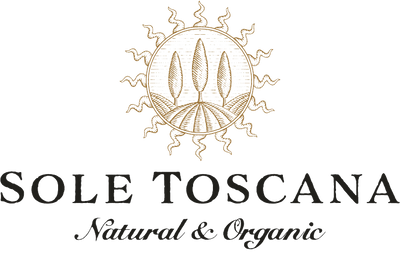Today we're looking at a common skincare ingredient that doesn't do much good for your skin—alcohol.
Here's the truth you need to know.

What's the Purpose of Alcohol in Products?
- Preservatives: The germicide properties of alcohol helps to keep products fresh for years.
- Solvents: Alcohols help creams and liquids to be smoother because they aid non-water soluble ingredients to combine and blend.
- Astringents: Some products like toners and cleansers contain alcohols which tighten the skin by shrinking pores.
- Enhance absorption: Alcohol improves the skin's ability to absorb other ingredients. (That's why it's a favorite in moisturizing creams.)
- Fast-drying: Since alcohol evaporates quickly, manufacturers include it in products they want to dry quickly. like hair spray.
Are All Alcohols Harmful?
We believe that because there are natural alternatives to any alcohol, there is no reason to have it in skincare products.
However, some alcohols are worse than others. "Denaturing" agents or additives are added to discourage people from ingesting them. And what are these additives made of-- Liquid petroleum by-products.
When purchasing products, look out for these alcohol variants:
- Ethanol
- Benzyl alcohol
- Denatured alcohol (alcohol denat)
- SD alcohol
- Isopropyl alcohol
- Ethyl alcohol
- Methanol
Effects of Alcohols on Skin
- Drying: Ever noticed how your hands feel dry after using hand sanitizer? Most sanitizers contain a high amount of alcohol. They strip away the skin's natural acid mantle and dehydrate its cells. Over time they increase the appearance of fine lines and wrinkles.
- Irritants: According to a 2008 study on ethanol and skin, "Ethanol use is associated with skin irritation or contact dermatitis."
- Disrupt barrier function: Your skin's natural barrier helps seal in moisture and protect against environmental toxins. Alcohol disrupts this barrier, leaving skin more vulnerable to irritants, allergens, bacteria, and viruses. In a 2003 study, scientists noticed this in doctors who were using alcohol-based cleansers to clean their hands. They found that these cleansers removed "barrier lipids" (healthy fats) which resulted in dry skin. Some of the lipids lost were natural antibacterials, which led to the increased growth of pathogens.
- Skin damage: In 2002, researchers treated skin cells in the lab with different concentrations of ethanol. They found that ethanol damaged the cells, and in some instances induced cell death.
- Exacerbate acne: A 2011 study found that over time, acne formulations containing alcohol aggravate the condition because they cause irritation and dryness. How ironic. When acne-prone skin becomes extremely dry, it produces more oil. More oil means increased breakouts.
That's a lot of damage for one ingredient! The good news is, alcohol can be easily avoided in skincare products. There are natural ingredients that serve the same purpose.
- Natural preservatives: vitamin E oil, rosemary oil, and grapefruit seed extract.
- Natural cleansers: witch hazel, lemon essential oil, and mint essential oil.
- Natural enhancers: avocado oil, because of its high oleic acid content.
We hope this information about the adverse effects of alcohols and what to be aware of when purchasing your next skincare products has been helpful.
Much love,
The Sole Toscana Skin Care Team


